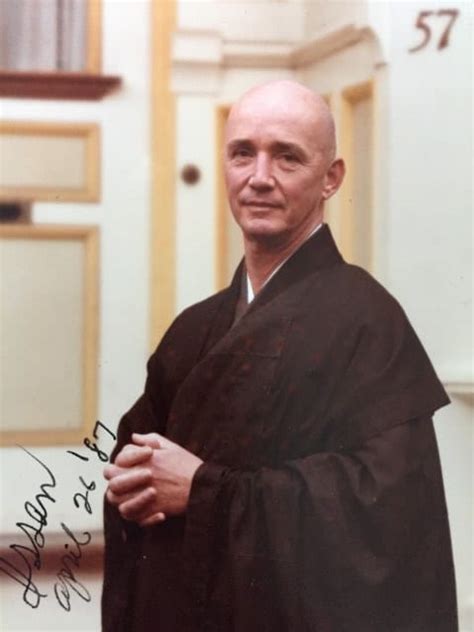A Quote by Gautama Buddha
May I hold myself in compassion.
May I meet the suffering and ignorance of others with compassion.
Related Quotes
The essence of love and compassion is understanding, the ability to recognize the physical, material, and psychological suffering of others, to put ourselves "inside the skin" of the other. We "go inside" their body, feelings, and mental formations, and witness for ourselves their suffering. Shallow observation as an outsider is not enough to see their suffering. We must become one with the subject of our observation. When we are in contact with another's suffering, a feeling of compassion is born in us. Compassion means, literally, "to suffer with."
If we take the time to look deeply, we see that understanding and compassion arise from suffering. Understanding is the understanding of suffering, and compassion is the kind of energy that can transform suffering. If suffering is not there, we have no means to cultivate our understanding and our compassion. This is something quite simple to see
Compassion allows us to use our own pain and the pain of others as a vehicle for connection. This is a delicate and profound path. We may be adverse to seeing our own suffering because it tends to ignite a blaze of self-blame and regret. And we may be adverse to seeing suffering in others because we find it unbearable or distasteful, or we find it threatening to our own happiness. All of these possible reactions to the suffering in the word make us want to turn away from life.
To the extent that our experience of suffering reminds us of what everyone else also endures, it serves as a powerful inspiration to practice compassion and avoid causing others pain. And to the extent that suffering awakens our empathy and causes us to connect with others, it serves as the basis of compassion and love.
The compassion we feel normally is biased and mixed with attachment. Genuine compassion flows towards all living beings, particularly your enemies. If I try to develop compassion towards my enemy, it may not benefit him directly, he may not even be aware of it. But it will immediately benefit me by calming my mind. On the other hand, if I dwell on how awful everything is, I immediately lose my peace of mind.
Most people have come to prefer certain of lifes experiences and deny and reject others, unaware of the value of the hidden things that may come wrapped in plain and even ugly paper. In avoiding all pain and seeking comfort at all costs, we may be left without intimacy or compassion; in rejecting change and risk we often cheat ourselves of the quest; in denying our suffering we may never know our strength or our greatness
I believe all suffering is caused by ignorance. People inflict pain on others in the selfish pursuit of their happiness or satisfaction. Yet true happiness comes from a sense of inner peace and contentment, which in turn must be achieved through the cultivation of altruism, of love and compassion and elimination of ignorance, selfishness and greed.
The root of compassion is not empathy; that is kindness. Kindness is great, but it is not the ultimate compassion. Ultimate compassion relieves the suffering that comes from separateness. The suffering that comes from separateness is relieved only when you are fully present with another person, not when you are separately present.
In contrast, compassion manifests in us as the offering of kindness rather than withdrawal. Because compassion is a state of mind that is itself open, abundant and inclusive, it allows us to meet pain more directly. With direct seeing, we know that we are not alone in our suffering and that no one need feel alone when in pain. Seeing our oneness is the beginning of compassion, and it allows us to reach beyond aversion and separation.



























